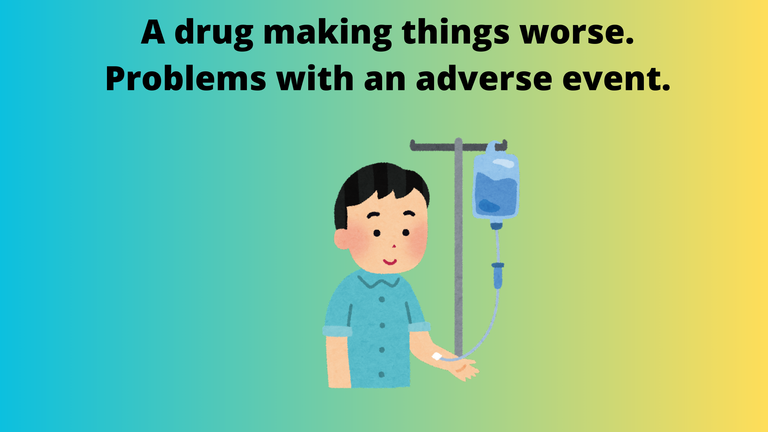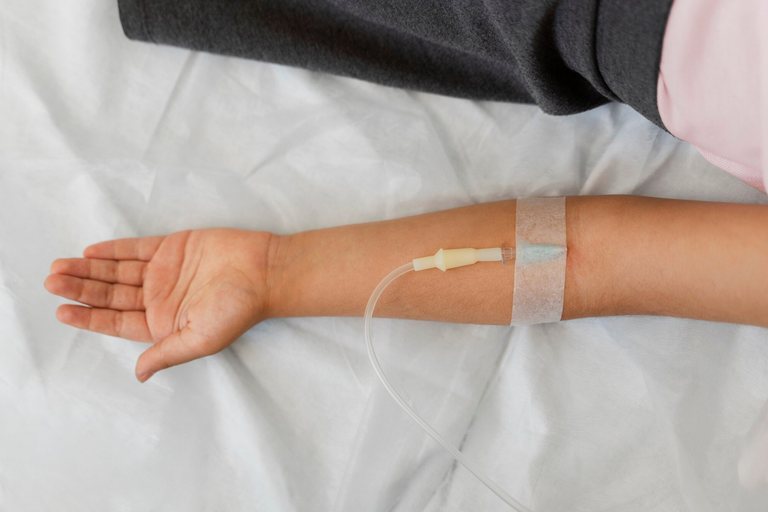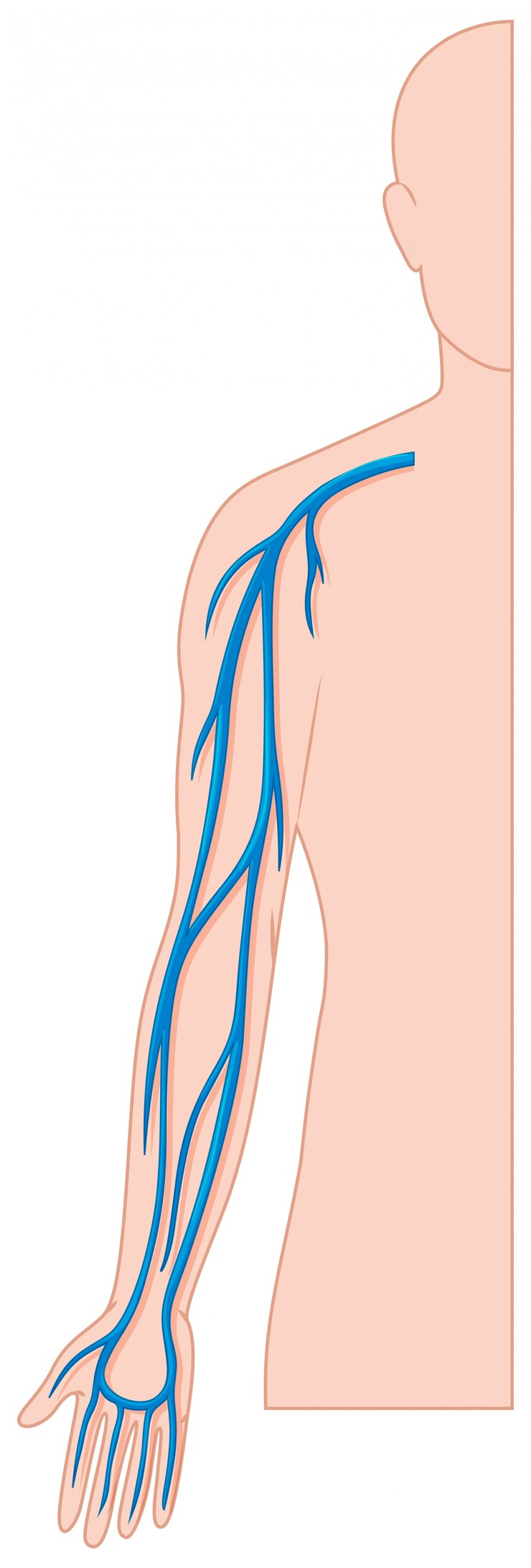
Drugs can generate adverse events which are rare and unexpected events. Different from side effects which are already documented product reactions which can happen. Side effects can be expected in a hospital or even in our houses while getting a prescribed medicine. It is always a good practice to read all the product information before an intake of a medicine and if you feel something that you read you will know that it is associated to the medicine, but what if it is something not documented? It is tough and we need to seek medication assistance to investigate, probably it is something else, but it can be also an adverse event. I had an adverse event before.

One of my hospitalization history was very traumatic. I was feeling already bad since I had that problem in my leg with some thrombosis events. I had a doctor that was pessimist and said about the possibility of amputation. On top of spending around 15 days in the hospital which includes some time in ICU due to the high dose of heparin that they were infusing me, they need to keep me anticoagulated there. One of the alternatives to help my vascularization was the use of a vasodilator, which I don't remember well which one, to help the blood flow better and help enzymes to get to the clotts to degrade it.
I had already an intravenous (IV) access in my wrist where they were infusing heparin and other stuff, so they added in there this other medication. After some hours I started to feel a burning sensation through my arm. I complained with the nurse. Then she told me that it was a regular side effect of the product since it had a different ph and osmolarity from the blood. But it was burning hard. After some minutes the infusion access started to get red. I called the nurse. They changed the arm of the infusion and tried again.
It started to burn again in the other arm. They thought at first that that was happening because my wrist veins weren't so strong, so they decided to move the IV access to my biceps, my upper arm region. The burning continued and my veins in the arm started to get red, I could see the veins of arm and the chest near this arm, it was the whole map of my veins visible in bare eyes. It was very scary but finally they decided to withdraw the treatment. It took some minutes and my body came back to normal.

This type of event can be scary, I was "lucky" that I was under supervision of nurses and doctors, maybe if that happened in my home could be worse. We just need to keep the calm and think a bit of what to do to avoid worst problems. Not long ago my wife had a side effect of a prescribed medicine, it was documented. It was a medium one let's say we were calm and brought the matter to the doctor, after a while they changed the prescribed medicine and she didn't have it anymore. Medical assistance will always help us in these cases so don't think twice in seeking help.



Os medicamentos podem gerar eventos adversos que são eventos raros e inesperados. Diferente dos efeitos colaterais que são reações de produtos já documentadas que podem acontecer. Efeitos colaterais podem ser esperados em um hospital ou mesmo em nossas casas ao tomar um medicamento prescrito. É sempre uma boa prática ler todas as informações do produto antes de tomar um medicamento e se você sentir algo que leu, saberá que está associado ao medicamento, mas e se for algo não documentado? É difícil e precisamos buscar assistência medicamentosa para investigar, provavelmente é outra coisa, mas também pode ser um evento adverso. Eu tive um evento adverso antes.

Uma das minhas histórias de hospitalização foi muito traumática. Eu já estava me sentindo mal desde que tive aquele problema na minha perna com alguns eventos de trombose. Eu tive um médico que era pessimista e disse sobre a possibilidade de amputação. Além de passar cerca de 15 dias no hospital, o que inclui algum tempo na UTI devido à alta dose de heparina que eles estavam me infundindo, eles precisam me manter anticoagulado lá. Uma das alternativas para ajudar minha vascularização foi o uso de um vasodilatador, que não me lembro bem qual, para ajudar o sangue a fluir melhor e ajudar as enzimas a chegarem aos coágulos para degradá-lo.
Eu já tinha um acesso intravenoso (IV) no meu pulso, onde eles estavam infundindo heparina e outras coisas, então eles adicionaram lá essa outra medicação. Depois de algumas horas, comecei a sentir uma sensação de queimação no meu braço. Reclamei com a enfermeira. Então ela me disse que era um efeito colateral normal do produto, pois tinha um ph e osmolaridade diferentes do sangue. Mas estava queimando muito. Depois de alguns minutos, o acesso de infusão começou a ficar vermelho. Liguei para a enfermeira. Eles mudaram o braço da infusão e tentaram novamente.
Começou a queimar novamente no outro braço. Eles pensaram a princípio que isso estava acontecendo porque as veias do meu pulso não eram tão fortes, então decidiram mover o acesso intravenoso para o meu bíceps, a região superior do meu braço. A queimação continuou e minhas veias no braço começaram a ficar vermelhas, eu podia ver as veias do braço e do peito perto deste braço, era todo o mapa das minhas veias visível a olho nu. Foi muito assustador, mas finalmente eles decidiram interromper o tratamento. Demorou alguns minutos e meu corpo voltou ao normal.

Esse tipo de evento pode ser assustador, eu tive "sorte" de estar sob supervisão de enfermeiros e médicos, talvez se isso acontecesse na minha casa poderia ser pior. Só precisamos manter a calma e pensar um pouco no que fazer para evitar problemas piores. Não muito tempo atrás minha esposa teve um efeito colateral de um medicamento prescrito, foi documentado. Foi um efeito médio, digamos que ficamos calmos e levamos o assunto ao médico, depois de um tempo eles mudaram o medicamento prescrito e ela não tinha mais. Assistência médica sempre nos ajudará nesses casos, então não pense duas vezes em procurar ajuda.

Posted Using InLeo Alpha


 )
)




